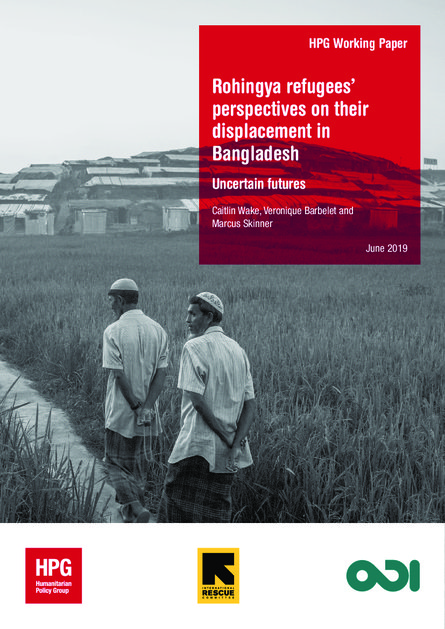
Bangladesh hosts over 900,000 Rohingya refugees, and their displacement is likely to be protracted. Recognising the complexities and sheer scale of the challenge of refugee hosting in Cox’s Bazar, as well as other development challenges and opportunities in Bangladesh, there is a need to explore better ways to accommodate the needs of Rohingya refugees and support local communities in the medium term.
Such discussions and plans must take into account the views of the Rohingya themselves. While there is good understanding of the short-term needs of Rohingya refugees and their perspectives, this does not appear to be informing planning for the medium term.
This paper – based on qualitative and quantitative research with Rohingya refugees in Bangladesh – provides insight into the current political and policy context, refugees’ challenges and aspirations, community engagement and what could improve refugees’ lives in the medium to long term.
It makes seven key recommendations:
- Continue to press for adequate levels of funding to improve living conditions in camps for Rohingya refugees.
- Effective communication and engagement of refugees.
- Continue with surveys on medium-term aspirations and support.
- Improve community engagement, community relationships and camp governance.
- Adopt strategies to contribute to the self-reliance of refugees.
- Focus international dialogue on the priorities articulated by refugees.
- Develop, fund and deliver a medium-term development plan for Cox’s Bazar that addresses priority needs as articulated by refugee and host populations.